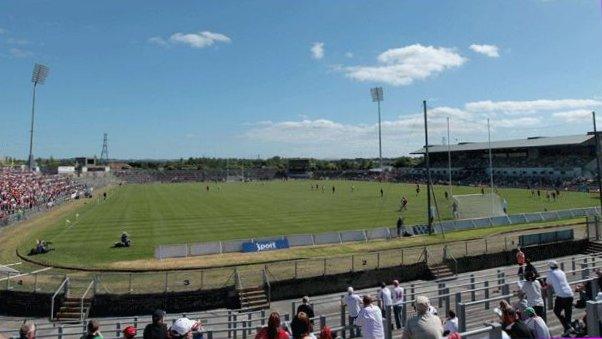Casement Park inquiry: Department 'told of safety concerns'
- Published
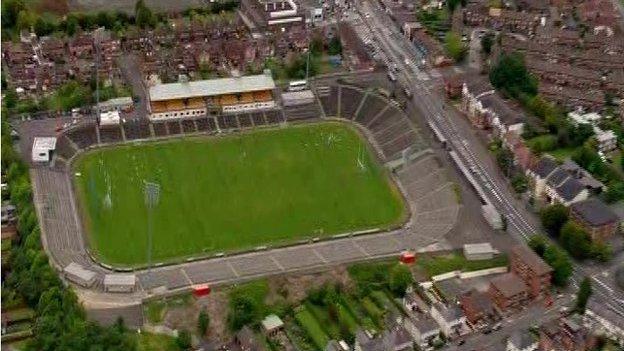
The committee is hearing evidence about the redevelopment of Casement Park in west Belfast
An assembly committee has been told the Department of Culture, Arts and Leisure (DCAL) was warned of safety risks in the Casement Park project over a series of months and years.
The DCAL committee is holding another hearing as part of its inquiry into the GAA stadium project.
In April, safety expert Paul Scott said he was put under "undue pressure" to approve plans for the new stadium.
On Thursday, a Sport NI official said the department was told of concerns.
And during the session the culture committee chair Nelson McCausland said it appeared that senior figures in the department had been "asleep at the wheel" during the project process.
Suspended chief executive of Sport NI, Antoinette McKeown, sat in the public gallery, as Mark Simpson reports
The suspended chief executive of Sport NI, Antoinette McKeown, made an unexpected appearance in the public gallery as her colleagues gave evidence, and later said she believed had "evidence which the CAL committee may wish to hear".
Plans to transform Casement Park into a modern 38,000-seater Gaelic games stadium were approved in December 2013.
However, in December last year a High Court judge ruled that Environment Minister Mark H Durkan had acted unlawfully in approving a new stadium.
In April, Mr Scott told the Culture, Arts and Leisure Committee that he had warned that the 38,000-capacity stadium could not be evacuated safely in certain emergencies.
Mr Scott, of the Safety Technical Group (STG), said pressure exerted upon him had been "so significant" he had no choice but to raise a complaint.
He told the committee that he had been expressing concerns about the stadium design for two years.
'Panic and crushing'
Among those giving evidence on Wednesday were Sport NI's Andrew Sloan and Nick Harkness.
Mr Harkness said communication between Sport NI and DCAL since March 2013 warned of a "potential for risk".
He said the documents illustrated that the "risk of potential panic or crushing and the need for the provision of additional emergency exiting" were "all communicated over a series of months and years".
He said this included the deputy and permanent secretary of the department being told.
Mr Harkness said concerns about emergency exiting were brought to the attention of officials.
"I cannot think of words that would express more seriously a concern around emergency exiting other than the words panic and crushing," he said.
Mr Harkness said at a meeting on 13 February 2014 "there was confirmation and acceptance from DCAL officials that there was an issue around emergency exiting".
"It was reassuring that the advice we had given was in fact understood," he said.
He later said that recommendations by the Safety Technical Group "in terms of measures to provide sufficient emergency exiting" were not reflected in the stadium design at the pre-planning stage.
He said this was in contrast to Windsor Park football stadium in Belfast.
'Goes against evidence'
David Hilditch of the DUP said the Sport NI official's testimony "goes against evidence which has been produced to date by officials".
He said the committee would have to make a few decisions as to whether they bring certain people back to answer further questions.
Mr Sloan said officials from DCAL attended early meetings of the STGs.
He said that in August 2013, the regional stadium programme architect advised that the department was "very busy and did not have the time to attend the meetings and did not require any meeting notes".
The former interim permanent secretary at DCAL also appeared before the committee on Wednesday.
Peter May, who was in the role in 2013-14, said "safety was an essential part of the programme".
He was aware more than a year ago about safety concerns, he said, but not the "showstopper" issues that Mr Scott had raised.
The issue of emergency exiting "was not seen as a potential obstacle to the achievement of the programme", he added.
Mr May denied a suggestion that there was a "tension between capacity and safety".
"You would not build a stadium that wasn't safe," he said.
- Published4 June 2015
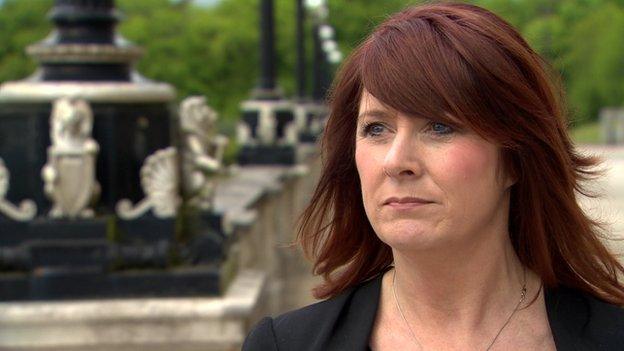
- Published21 May 2015
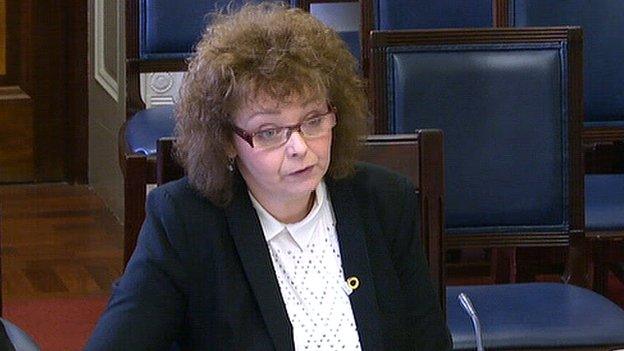
- Published21 May 2015
- Published5 May 2015
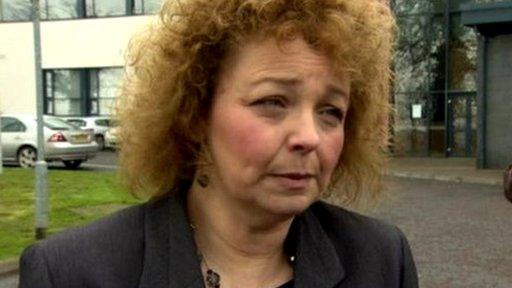
- Published1 April 2015

- Published15 December 2014
